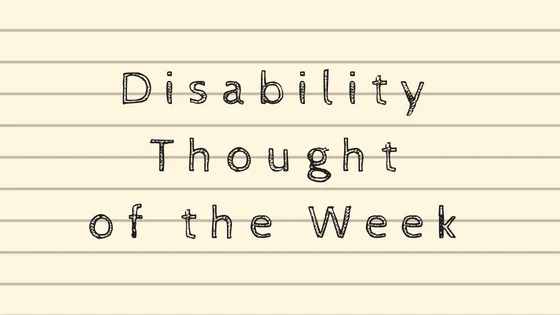Disability Thought Of The Week: Patience
/Have you ever heard or read a quote that perfectly articulates an important thought or idea, even though the quote itself is totally unrelated? That happened to me yesterday while I was watching an episode of Buffy the Vampire Slayer:
“I was being patient, but it took too long.”
— Anya, Buffy The Vampire Slayer, Season 6, Episode 1
The joke is that Anya is a former demon who is new to being human, and therefore doesn’t know how to be polite. She has these powerful needs and wants, but few restraints on her behavior. So people are always telling her to calm down or be patient. The idea inside of that joke is that Anya is, accidentally, often very sensible and direct, where her “normal” friends are sometimes overly concerned with etiquette and caution.
By one standard, Anya is tactless and childish. By another, she is refreshingly logical and direct.
I instantly thought of how disabled people feel about being patient, especially on the issue of accessibility. As thousands of disability activists have said over the last several years, the Americans with Disabilities Act is not a new law. It hasn’t been any kind of "new" for at least a decade. Yet, we are still told, or it is heavily implied, that the proper, reasonable attitude we should have about our full legal rights being respected is patience. It takes time to comply. It takes time to change attitudes. It takes time to retrofit old buildings and neighborhoods.
The ADA passed in 1990. We have been patient, as Anya would say. But it has taken too long.
P.S.: Here's another "Buffy" themed blog post from 2015: Disabled Youth & Vampire Slayers.












